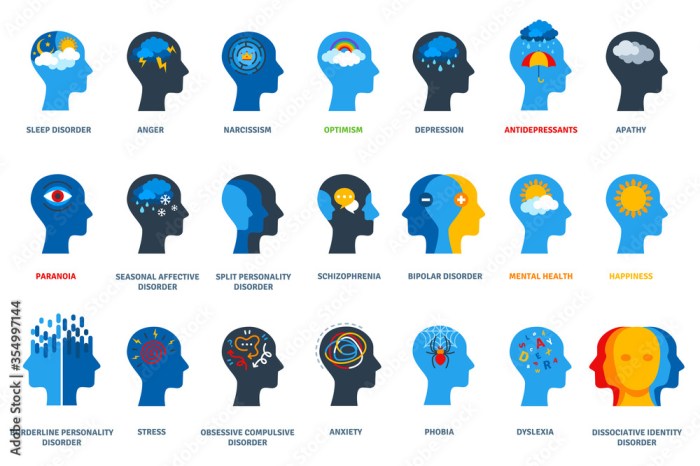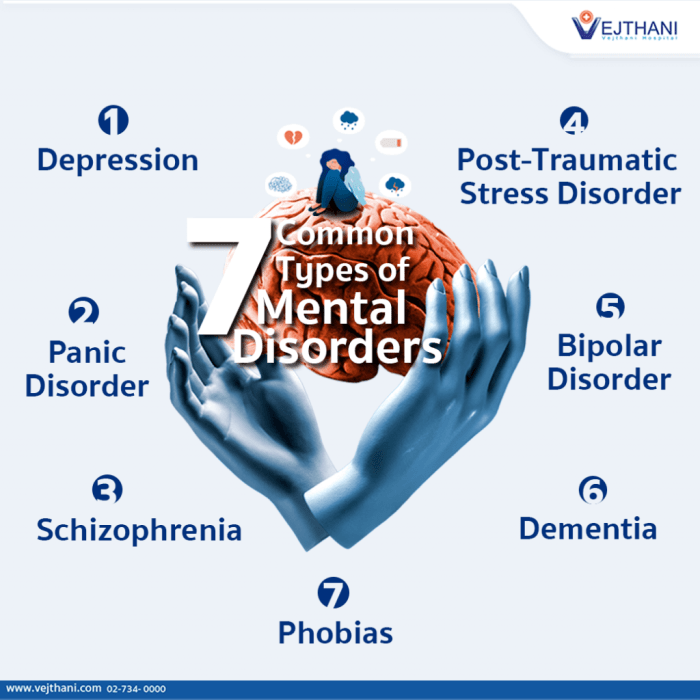For most psychological disorders apex – Apex, a concept referring to the extreme or peak manifestation of psychological symptoms, plays a significant role in understanding and treating psychological disorders. This article delves into the complexities of apex, exploring its assessment techniques, treatment approaches, and impact on treatment outcomes.
Apex is a crucial factor in the presentation and progression of psychological disorders. Its presence can intensify symptoms, complicate diagnosis, and influence treatment effectiveness. Understanding apex is essential for clinicians and researchers seeking to provide optimal care for individuals with psychological disorders.
Psychological Disorders and Apex

Apex, a psychological construct referring to the tendency to experience intense emotions and thoughts, is prevalent in various psychological disorders. Understanding apex is crucial for accurate diagnosis and effective treatment planning.
Disorders associated with apex often exhibit:
- Heightened emotional reactivity
- Rapid mood swings
- Impulsive behaviors
- Difficulty regulating thoughts and emotions
Methods for Assessing Apex in Psychological Disorders

Assessing apex involves various techniques:
- Clinical Interviews:Trained clinicians ask structured questions to gather information about an individual’s emotional experiences and behaviors.
- Self-Report Measures:Questionnaires and scales, such as the Affective Intensity Measure, assess subjective experiences of emotional intensity.
- Behavioral Observations:Researchers or clinicians directly observe an individual’s behavior and emotional responses in various situations.
Each technique has strengths and limitations, necessitating a multifaceted approach for accurate assessment.
Treatment Approaches for Apex in Psychological Disorders
Evidence-based interventions address apex in psychological disorders:
- Cognitive Behavioral Therapy (CBT):Focuses on identifying and changing maladaptive thought patterns and behaviors that contribute to apex.
- Dialectical Behavior Therapy (DBT):Teaches individuals skills for regulating emotions, tolerating distress, and improving interpersonal relationships.
- Medication:Antidepressants and mood stabilizers can help reduce emotional intensity and stabilize mood swings.
Treatment strategies are tailored to the specific disorder and individual needs.
Impact of Apex on Treatment Outcomes: For Most Psychological Disorders Apex

Apex significantly influences treatment outcomes:
- Increased Symptom Severity:Apex can worsen symptoms and make treatment more challenging.
- Reduced Treatment Adherence:Individuals with apex may struggle to follow treatment plans due to emotional volatility.
- Prolonged Treatment Duration:Addressing apex often requires longer-term treatment to achieve sustained improvement.
Treating apex is essential for optimizing treatment outcomes.
Case Studies and Examples

Case Study 1:A patient with Borderline Personality Disorder experiences intense emotional outbursts and difficulty regulating thoughts, highlighting the role of apex in this disorder.
Case Study 2:An individual with Bipolar Disorder exhibits rapid mood swings and impulsive behaviors, demonstrating the impact of apex on the course of this disorder.
These cases illustrate the unique challenges and successes in managing apex in psychological disorders.
Research Directions and Future Considerations
Further research is needed to:
- Develop more sensitive and objective measures of apex.
- Investigate the neural mechanisms underlying apex.
- Explore novel interventions tailored specifically to addressing apex.
Advancing research on apex will enhance understanding and improve treatment for individuals with psychological disorders.
FAQ
What is apex in the context of psychological disorders?
Apex refers to the extreme or peak manifestation of psychological symptoms, characterized by their intensity and duration.
How is apex assessed in individuals with psychological disorders?
Various assessment techniques are used to identify apex, including clinical interviews, standardized symptom scales, and behavioral observations.
What are the challenges in treating individuals with apex?
Individuals with apex may exhibit more severe symptoms, reduced treatment adherence, and a higher risk of relapse. Tailoring treatment strategies to address the unique challenges posed by apex is crucial.